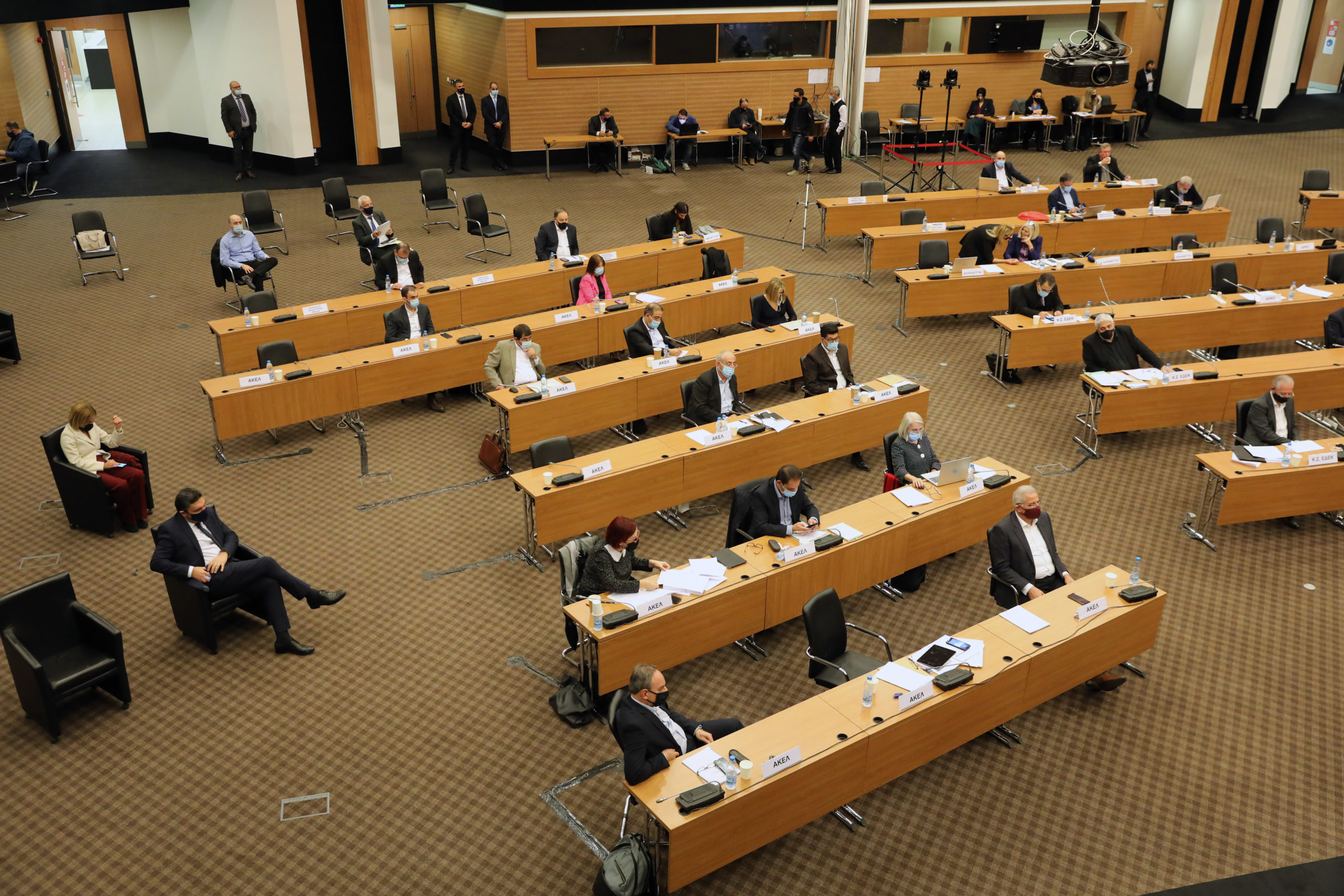Following its unprecedented rejection, Cyprus’ revised 2021 budget was narrowly approved by parliament with the government relieved to see millions for coronavirus support unlocked.
The €17.1 bln budget was passed on Thursday with 29 votes for and 26 against.
Votes in favour came from ruling DISY (18 seats), EDEK (three seats), the Citizens Alliance (one seat), Solidarity (two seats), far-right-wing Elam (two seats) and the Cooperation of Democratic Forces (three seats).
Finance Minister Constantinos Petrides said: “Without an approved budget, things would have been tough on Cyprus.”
He said Cyprus might have lost its sovereign investment grading, making it extremely difficult to borrow.
“We are already facing difficulties due to the economic crisis, but at least now we have the ammunition so that, clear-headed, we can overcome this crisis and handle it better than other countries.”
Petrides also thanked the opposition parties for their ‘responsible stance’, whose support “helps us avoid new misadventures and dangers to the country.”
Responding to criticism, Petrides argued that the budget was not part of a neoliberal agenda but “on the contrary, it is the most social budget this state has ever seen”.
“It is the budget with the most expenditure in the field of health, it is the budget with the most social expenditure, which follows citizen-friendly policies, and supports society, the entrepreneur, the employee, the patient, vulnerable groups at a time of crisis, a time of need.”
President Nicos Anastasiades thanked the parties that backed the budget for “averting a new crisis for the country”.
“Despite many of our political differences, it is a contribution to progress and a sign of political maturity and patriotic behaviour.”
Anastasiades said the government “can now focus on solving the problems facing the country, in the midst of an unprecedented pandemic”.
“We can now support the health system, continue to upgrade our hospitals, support businesses and employees, stand by our vulnerable fellow citizens”.
State running on empty
The budget was initially shot down in December with the state running on what is known as ‘twelfths’, equal to one-twelfth of the previous year’s budget, meaning that expenditures cannot exceed the spending of the same month of 2020.
The government could have done this just for two months until March.
The ballot turned in the government’s favour after the Anastasiades administration managed to sway social democrats EDEK and Solidarity’s votes to their side.
AKEL, DIKO, the Greens and independent MP Anna Theologou voted against.
Essentially, DIKO made good on its threat to take matters to the extreme and veto the budget because the government would not grant the Auditor General access to files relating to the controversial citizenship-by-investment scheme.
AKEL accused the government of trying to sweep corruption under the carpet.
The investment scheme was scrapped in November after it was revealed that foreign investors with a shady past had obtained a Cypriot passport.
The balance tipped in the government’s favour when EDEK announced on Wednesday they would back the state budget citing satisfaction over the inclusion of more social benefits.
The Solidarity movement also said it would change its vote but would do so “under protest.”
The revised 2021 budget – deemed to be crucial in dealing with the economic fallout from the pandemic – provides €7.16 bln in expenditures with revenues of €6.48 bln.
The state budget, as re-submitted to Parliament, provides increased spending of 2.5% compared to the initially budgeted.
After the amendments incorporated as a result of the consultations that took place after the budget was initially rejected, the new budget increased by €339.9 mln.
Revenues projected in the budget (excluding financial flows) amount to € 6.48 mln, compared to revised revenues of €5.9 bln in 2020, showing an increase of 9.5%.
Opposition parties leveraged the government’s desperation to get the budget through, managing to include amendments of their own.
One such amendment blocked any funds earmarked for denationalising of public entities or government departments with the exception of expenditures related to developing Larnaca port and marina, projects in Troodos and the Cyprus Stock Exchange.
But any expenditures on these items must first secure written consent from the House Finance Committee.










